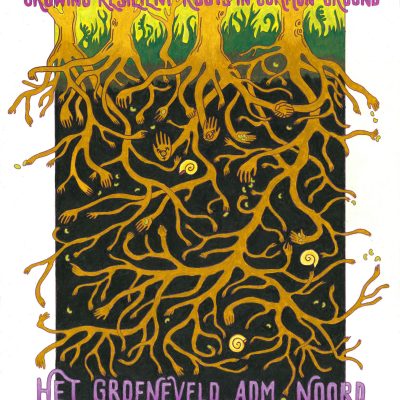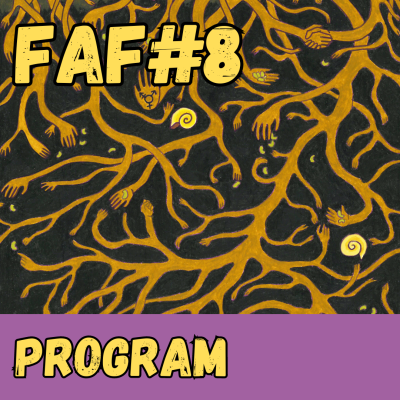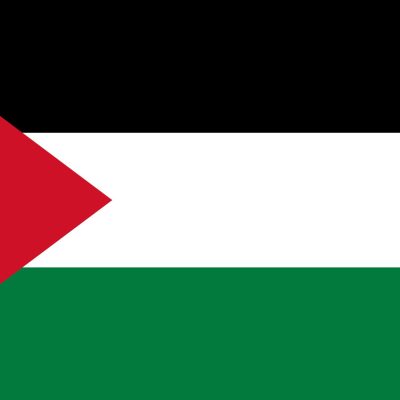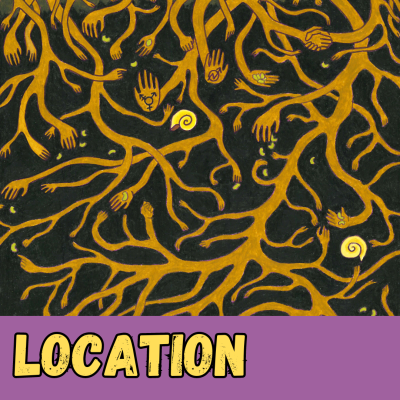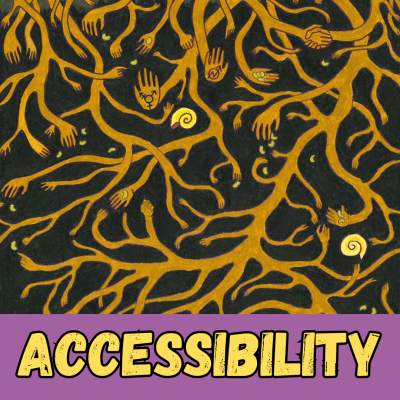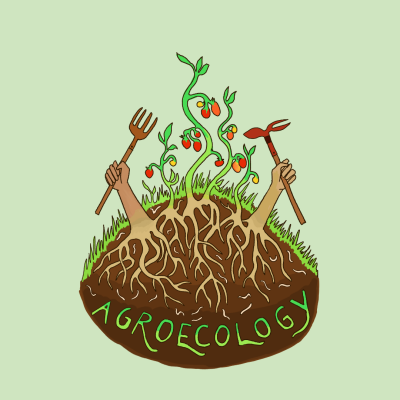The past months have been a wave of direct actions. Through this, our minds have been jumbled with thoughts of what is effective and what is not, and what message we should be sending out with our actions. This reflection has led us to much frustration, as well as many insights. Most prevalent for this article is the message we all send out with our movements, and how to join forces with people who feel like they are fighting a different, sometimes opposing fight. All resources used in writing this article can be found at the end.
Unless you have been living under a rock, you have heard of the world climate strikes which took place on the 20th of September around the world and on the 27th of September in Den Haag, the Netherlands. Now don’t get me wrong, it was empowering to see so many out demanding climate actions from their governments and I am grateful to everyone who took to the streets. However, for some of us, it was sad to see these strikes somewhat dominated by an individualist perspective on climate action, rather than demanding the systemic change which we all know is needed.
Many signs read GO VEGAN or were used by parties such as Groen Links to show that they are getting out on the streets to demand a change of regulations. However, do we really believe this problem can be solved by dietary change or more regulations? Even while the largest polluters of the world continue to dodge regulations through lobbying or other powers? Does this not need a deeper systemic change in how we are organised and hold each other accountable? Well we’ll get back to that. Let’s hear the other side of the story first.
Soon after these strikes, on the 1st of October, farmers from all over the Netherlands drove to Den Haag in tractors for the Agractie. This was an action which, when I read the demands on the website, seems to say a big F you to the preceding climate strikes. It portrayed a message which once again didn’t point to the systemic issues at play – instead it portrayed the individualistic perspective of farmers as victims of over-regulation. This left me with a deep sense of despair and hopelessness. But after an encounter with a dairy farmer’s husband on the train the morning of the Agractie, I began to regain some hope for both our movements.
As a group of people walked through the intercity handing out free cheese samples with pictures of happy pigs on their t-shirts, groups after groups of farmers began to fill the seats. This continued until I was the only non-farmer in this ‘silent’ carriage – it seemed the silent rule didn’t apply anymore for this trip, so I could thankfully strike up a conversation with the man sitting next to me without the fear of prosecution. “What is going on?” seemed like a logical first step in the conversation.
He told me proudly that a large group of farmers were going to Den Haag to protest. Although he was not a farmer himself, he was here to support his girlfriend who he helps from time-to-time with her small dairy farm of forty cows. After a brief exchange of small talk, I asked why they were protesting exactly. He responded hastily:
“Well governments are not supporting farmers. There is a lot of regulations and the price is very low. They also send very mixed messages. For example, they abolished the milk quota in 2015 and incentivised lots of farmers to upscale, increase herds and invest in infrastructure, like new milking parlours. Now they have a phosphate quota where farmers are told to reduce herds because they are producing too much eh shit… sorry I don’t know the proper English. My girlfriend was lucky because she kept her herd at forty cows, so this does not affect us too much.”
This seemed very reasonable. We continued into the details of methods used on their farm and the regulations which dictate how they work. It was not an organic farm, but they did manage to have the cows outdoors between April and November. This ensured they got a higher price for their milk and it gave them a sense of satisfaction seeing the cows out in the open. He spoke of GMO regulations and how it made feed too expensive for farmers. I asked whether a higher price for milk would solve their frustrations?
“Yes it would, but we don’t have power to change the price of milk besides what we already do. We are lucky because we sell to a cheese company and they have a fixed price which is relatively high so that is nice. We could switch to organic, but it is a lot of work and not worth the cost in the end.”
It seemed that they had done as much as possible to increase the price of their milk. To campaign or ask for anymore was not possible as the market was a distant uncontrollable external force for this farm. Due to this, the rhetoric remained anti-regulation as it seemed like the only external force within their control. Regulation clearly led to a lot of frustration in the farming community. There are regulations for everything: the kind of feed that is used, quotas on phosphates etc. He went on to discuss the hypocrisy of governments and the other actions taken by farmers at Lelystad and Schiphol airport.
“These airports emit way above the permitted nitrogen pollution, but they don’t face the same strict regulations”.
I couldn’t help but agree. Since we were on the topic of direct action, I began to explain the recent Free the Soil action camp which we had been to. I explained the company Yara who he had heard of but didn’t know much about. I explained how fertiliser production was linked to the fracking of gas in Groningen. I explained how Yara makes over 12-billion-euro revenue per year. He took all this in and seemed quite shocked. “These are the companies we should be protesting against. They’re the ones doing very little work and profiting the most from this system of short-term regulations and low market prices” I said. He couldn’t help but agree.
“Give the money to the farmers” he said laughing. I thought about this, but the fact that it was not that simple loomed over me.
A couple of weeks down the line, I have been thinking a lot about this conversation and the insights we gained from the climate strikes. Paradoxically, the frustrations I have with the climate strikes are the same as those with the Agractie. Both portrayed messaged of individualism and that we need a change of regulations, diets or other sticky plaster solutions to solve our problems. One shouts for more, the other shouts for less. But what we should all be shouting is for the systemic change which underlies all of these frustrations.
We need a transition to localised trading systems that are controlled by consumer and producer, not in-between corporations. We need governments which are representative of their citizens, farmers and alike, not of lobby groups and highly payed members of elites. We all need to realise that we are living on a finite planet which cannot deal with uncapped economic growth. Unfortunately, this still seems to be an idealistic perspective far from the norm just yet. To learn more, have a read of the resources used to write this article.
Resources
About the climate strike and the dark sides of the “Green New Deal”. (2019, September 19). Retrieved from Make Rojava Green Again: https://makerojavagreenagain.org/2019/09/19/about-the-climate-strike-and-the-dark-sides-of-the-green-new-deal/
Biggelaar, van G. (n.d.). The Dutch dairy sector in a post quota era. Impact of a new legislation on farm management and labour income of a dairy farm. Retrieved from Wageningen University of Research: https://www.wur.nl/en/article/The-Dutch-dairy-sector-in-a-post-quota-era.-Impact-of-a-new-legislation-on-farm-management-and-labour-income-of-a-dairy-farm-Geert-van-den-Biggelaar.htm
Hendrickx, F. (2019, October 4). de Volkskrant. Retrieved from Tjeerd de Groot (D66): ‘Er zullen meer boerenprotesten komen’. (English: Tjeerd de Groot (D66): “There will be more farmers protests”): https://www.volkskrant.nl/nieuws-achtergrond/tjeerd-de-groot-d66-er-zullen-meer-boerenprotesten-komen~b71edf55/?referer=https%3A%2F%2Fwww.google.com%2F
Jacobs, R. (2019, October 5). Brainwash. Retrieved from Boer en burger verenigt u! We voeren dezelfde strijd. (English: Farmer and citizen unite you! We are fighting the same fight): https://www.brainwash.nl/bijdrage/boer-en-burger-verenigt-u-we-voeren-dezelfde-strijd
Rooijen, van L. (2019, October 4). Boerderij. Retrieved from Organisator Agractie blikt terug: nu begint het pas! (English: Organizer Agractie looks back: now it’s just beginning!): https://www.boerderij.nl/Home/Achtergrond/2019/10/Organisator-Agractie-blikt-terug-nu-begint-het-pas-480954E/

